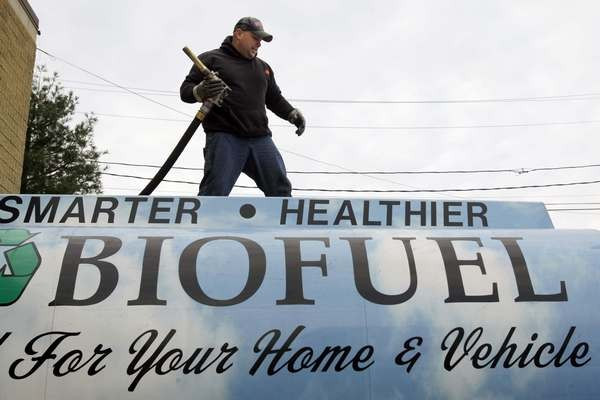Push for food-based biofuels by EU has caused rise in emissions, says study

Using the so-called green biodiesel for transport was supposed to cut down CO2 emissions but could increase Europe's overall transport emissions by nearly 4%, according to a new EU study. These extra emissions are equivalent to putting around 12 million more vehicles on the roads of Europe in 2020. The analysis also takes into account the 7% cap on the contribution of biofuels produced by food crops, according to green group Transport & Environment (T&E).
"The European Commission has finally revealed that Europe's policy failure in stimulating bad biofuels is even more spectacular than previous scientific research indicated. We should phase out the mandating, subsidising and zero-carbon accounting of these fuels at European and national level after 2020," said Jos Dings, executive director of Transport & Environment.
Biodiesel from virgin vegetable oil creates around 80% higher emissions than the fossil diesel it replaces, found the EU study. Soy and palm-based biodiesel are believed to be two and three times worse respectively. This biodiesel is the most popular biofuel in the European market and is anticipated to have around 70% share in 2020.
Over 75% of biofuels - including bioethanol as well as biodiesel - are predicted to have lifecycle greenhouse gas emissions comparable to or higher than fossil petrol and diesel in 2020.
Dings warned: "The cure is plainly worse than the disease. The 7% cap on food-based biofuels has helped though, and should be lowered to zero after 2020. These fuels should also not count as zero-emission fuels. If we do not end incentives for bad biofuels, the better ones will not stand a chance."
The report's publication was delayed for several months. "It was finished ages ago but DG Ener [the commission's energy wing] never wanted to publish it," an EU source told the Guardian. Some critics argued that the study's publication could damage international relations with palm oil-producing states.
The European Union is aiming to source 10% of its transport fuel to "renewables" by 2020 – mostly from biodiesel. Robert Wright, the secretary general of the ethanol industry association ePURE said: "We urge European policy-makers to reflect on these findings and identify ways to promote and incentivise the use of biofuels that have high greenhouse gas savings and low land use change impacts, such as European ethanol."
© Copyright IBTimes 2025. All rights reserved.






















